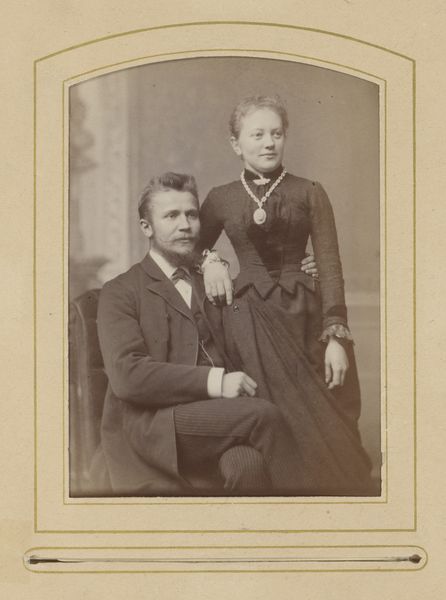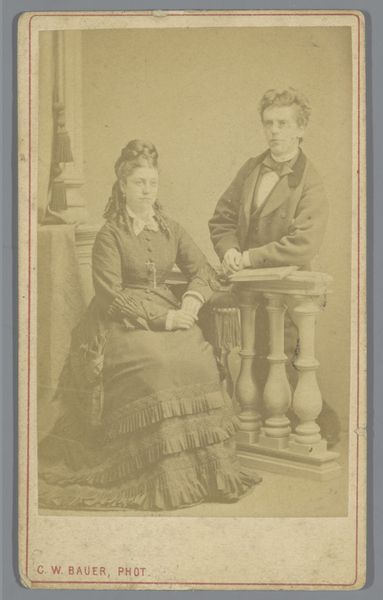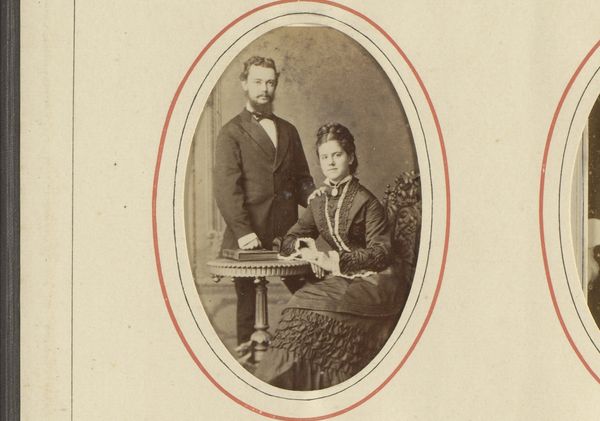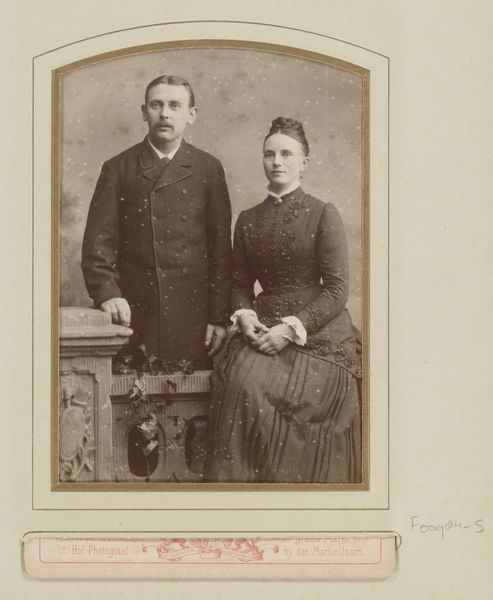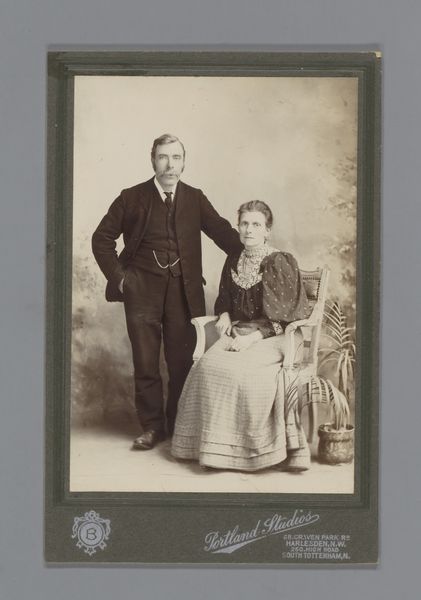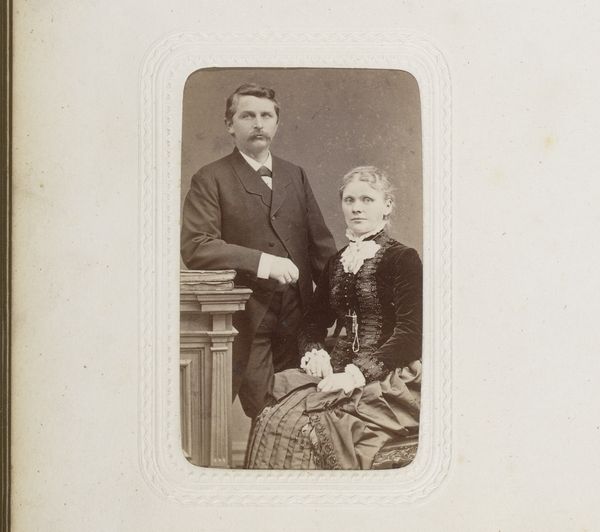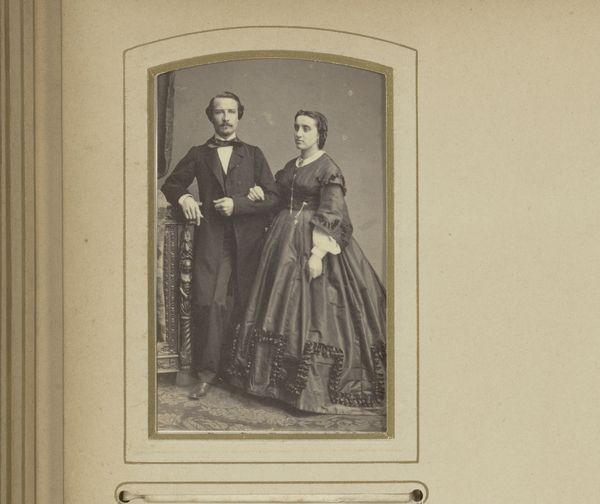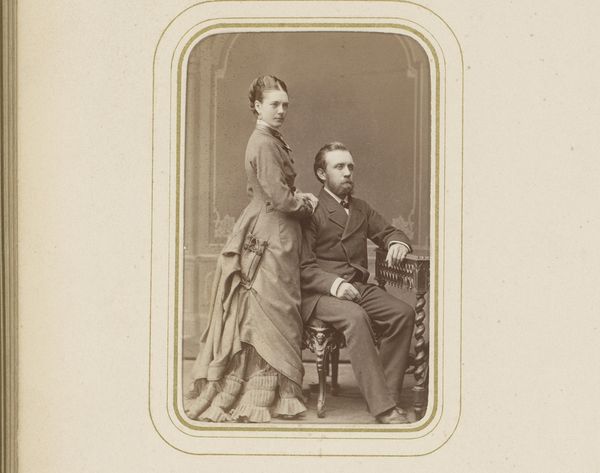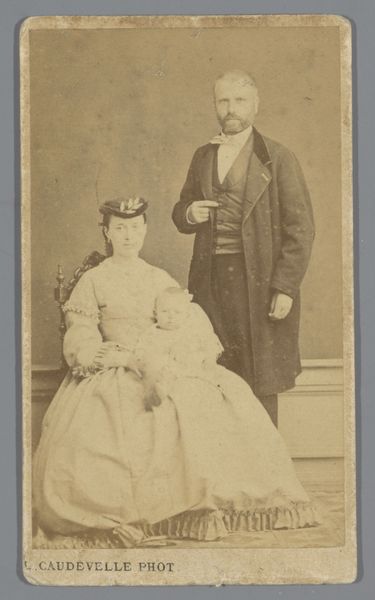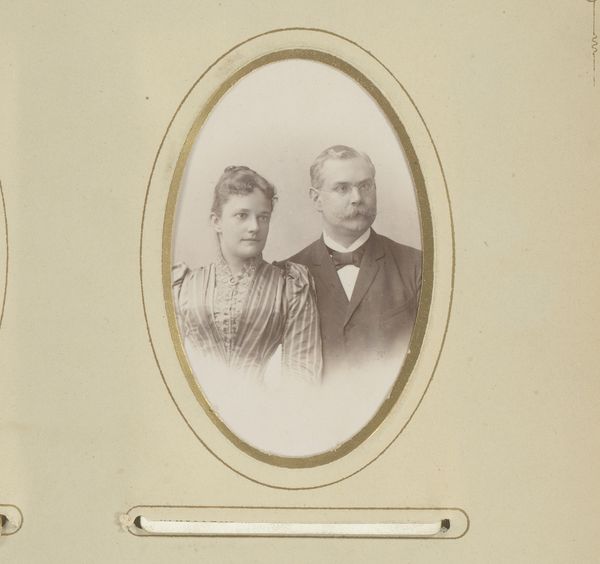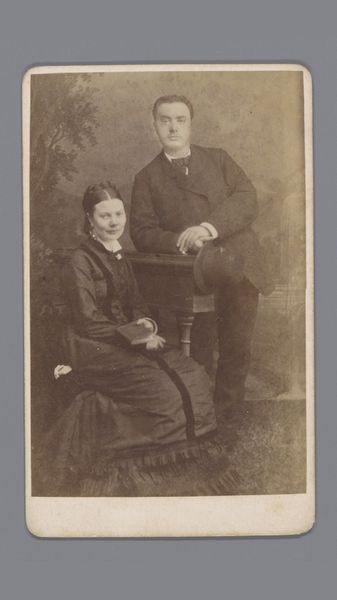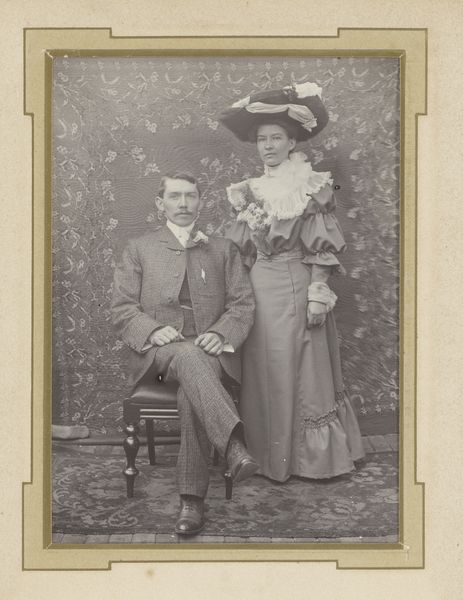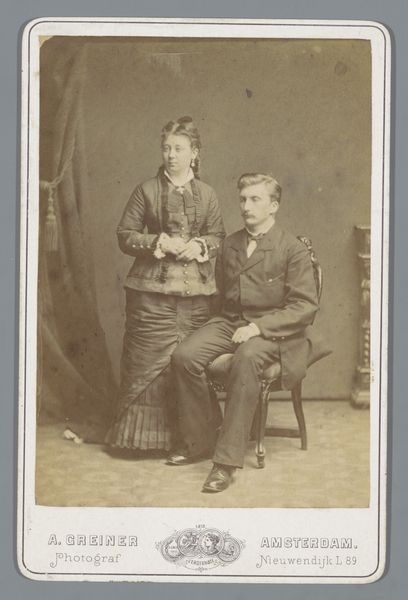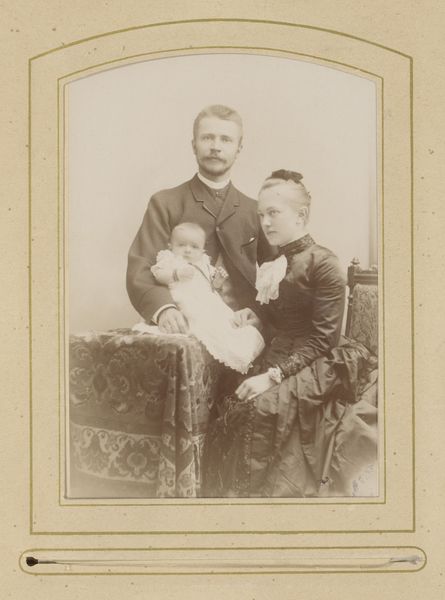
photography
#
portrait
#
yellowing
#
aged paper
#
16_19th-century
#
vintage
#
yellowing background
#
photo restoration
#
archive photography
#
photography
#
historical photography
#
old-timey
#
yellow element
#
19th century
#
academic-art
Dimensions: height 138 mm, width 97 mm
Copyright: Rijks Museum: Open Domain
Curator: Here we see "Portret van een staande man en een zittende vrouw," or "Portrait of a Standing Man and a Seated Woman," taken sometime between 1860 and 1900 by Ernst Schroeter. It's a wonderful example of photography from that period. Editor: My first impression is one of formality tinged with sadness. The aged paper lends a sepia tone that almost feels like a collective memory surfacing, yet there is an undeniable weight in the subjects’ expressions. Curator: Yes, that is a common visual shorthand from that era. It's interesting how studio photography in the 19th century often captured a certain somberness, reflecting perhaps the weight of societal expectations and the formality inherent in portraiture at the time. These portraits acted as markers, visual confirmations of one’s existence for posterity. Editor: Indeed. The composition reinforces this. The man stands rigidly, a pillar of supposed strength, while the woman is seated, literally placed on a lower plane. Even the decorative backdrop and the architectural elements seem to frame them within rigid social structures. Do you perceive that the way she has her head resting on her hand is boredom or a signal of ill health? Curator: It's hard to say definitively. That pose could have been stylistic. The meanings embedded within body language have shifted and changed drastically since this photo was taken. However, in that era the pallid presentation might have even suggested delicate health or refinement, which held a different social currency back then. It's amazing what symbols carry and how their meanings transform over time. Editor: It’s compelling how a seemingly simple photograph can unveil such a complex tapestry of social and cultural narratives. It's a moment frozen in time, revealing both the public face and perhaps a hint of the private selves struggling within. There is something enduring in these historical glimpses into peoples' lives, no matter how curated or presented. Curator: Agreed. By examining the symbols embedded within, we can hopefully glean an emotional essence, or better yet, construct a richer understanding of lives that preceded ours. Editor: Ultimately, this is why preserving historical material like this is essential for the contemporary moment; there is endless opportunity to unpack and apply historical events with relevance to now.
Comments
No comments
Be the first to comment and join the conversation on the ultimate creative platform.
